These days controversy is just a mouse click away. Dentistry is not immune to this. Since its inception, the NTI nightguard has always been a lightning rod for controversial debate.
Over 1 million NTI appliances have been delivered with thousands of dentists prescribing them every year. There’s also a much smaller yet vocal group of dentists who use anecdotes to lambast the NTI and its users.
There is no need for debate; no need for controversy; no need for heated arguments.
There is evidence. Factual evidence.
Who Is Using the NTI?
In 2011, Inside Dentistry published “Patterns of Use for an Enhanced Nociceptive Trigeminal Inhibitory Splint” featuring feedback from 587 dentists (97% were general dentists) that each placed an average of 160 NTI appliances. 58% of them used the NTI > 5 years.
322 of the dentists used the NTI equally for headache, orofacial pain management, and tooth protection. 147 of the reporting dentists used the NTI largely for pain management. The remainder used it primarily to protect teeth and restorations from the damaging effects of bruxism.

Before I share more of the key findings of the paper, here’s a little bit about how the NTI works. The NTI therapeutic protocol eliminates any posterior or canine contact in a centric clench and any excursive movements. Its unique patented design ensures instant and continual incisal guidance which has been shown to reduce clenching intensity by approximately 80%. In an FDA clinical trial, the NTI showed that 82% of NTI trial participants experienced a 77% reduction in migraines. 16% of them experienced an 85% – 100% reduction in all headache events. Those are astounding results.
But Does It Really Work?
The article’s findings are eye-opening. “When asked to categorize the anatomic pain profile of patients with NTI, 48% of treated patients had pain predominantly “above the cheeks” (migraine, tension, other primary headaches; temporalis pain); 34% were patients with pain “below the cheeks” (facial, tooth, pterygoid and masseter muscle, or neck pain); and 21% had pain predominately located in the TMJs.”

Several hundred dentists rated their success with NTI treatment for “pain above the cheeks” (migraine, tension, and other primary headaches) as 90%.
In patients with “pain below the cheeks” (facial tooth masseter or pterygoid muscles, or neck pain), 88% of cases were mostly successful, and in patients with joint pain, 74% of cases were mostly successful.
What About Side-effects?
Most of the controversy related to the NTI is centered on anecdotal claims that it causes anterior open bites due to posterior supraeruption or anterior intrusion.
The dentist subjects of the paper were asked if they would decrease, increase, or maintain their rate of NTI use in the future. 97% said they would INCREASE or MAINTAIN their use of the NTI for pain management. Ask yourself, “Would 97% of my colleagues prescribe a treatment that has adverse effects?”
To put this in even sharper relief, of 78,711 NTI treatments accounted for in this paper, the reports of a subsequent anterior open bite were just 1.6%.
Compare the remote possibility of a slight bite change to the most common side-effects of topiramate – a leading pharmacological migraine preventative: nausea/vomiting, diarrhea, somnolence, dizziness, fatigue, nasopharyngitis, palpitations, bleeding, mood changes, dysuria, hematuria, and increased frequency of urination.
So, Now What?
Do you want to reduce or eliminate their headaches and migraines? How about protecting their teeth and your restorations from the ravaging effects of parafunction? Do you want to turn your patients into raving fans that will refer their loved ones to you?
After more than a decade of NTI-tss Plus use, Stacy Ochoa, DDS, said, “I’m using the NTI-tss Plus more than ever before. In many cases, headache frequency decreases, the episodes’ impact lessens, muscles calm down, teeth are protected, and patients live happier lives. This makes me feel better, too. It’s just one more way that dentistry can bring a smile to patients’ lives.”

Be like Dr. Ochoa and visit Glidewell Dental – a certified NTI lab – to send your next NTI case.